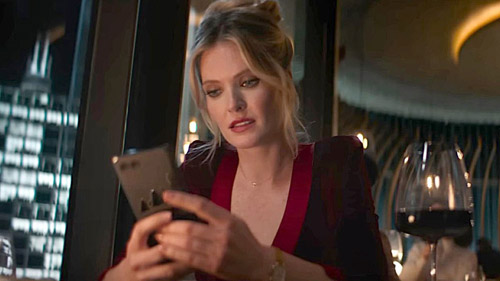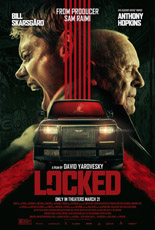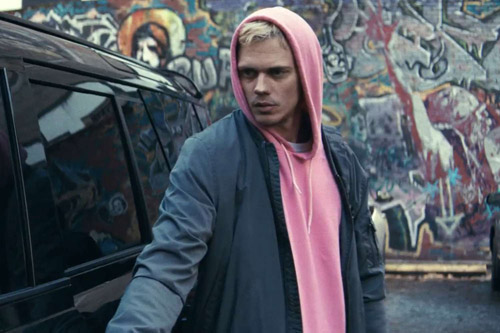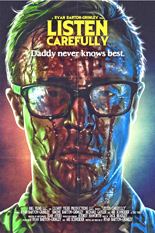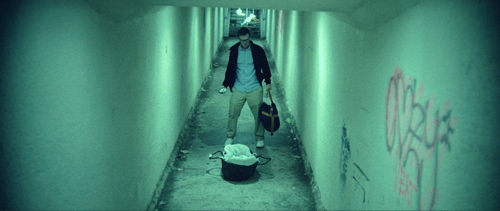
As The Beach Boys once sang, catch a wave and you’re sittin’ on top of the world. But what happens when you’re prevented from catching a wave, much less a break? That’s the dilemma facing Nicolas Cage’s title character in The Surfer, a single-location thriller shot on the Australian oceanside.
Playing a successful businessman in the throes of a divorce, he’s taken a mental health day to surf with his teen son (Finn Little, Those Who Wish Me Dead) at a special place: by the house he’s purchasing. It’s where the surfer grew up, mere steps from the sacred sand. Trouble is, the beach is overrun by a gang of bullies who operate by a simple code: “Don’t live ’ere, don’t surf ’ere!”
Led by a red-robed and crispy-tanned Julian McMahon (Fantastic Four: Rise of the Silver Surfer), the hooligans deny the surfer entry and steal his board. Running recon from the parking lot atop the hill, the surfer attempts to reclaim what’s his, physically and spiritually, only to be outsmarted at every turn. Just when you think the surfer can’t sink any lower in his attempt to answer the mythic call of the waves, glug glug glug.
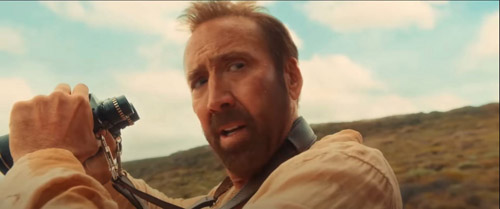
With shades of Frank Perry’s The Swimmer, but more akin to Sam Peckinpah’s Straw Dogs at high tide, The Surfer finds Irish director Lorcan Finnegan paying off the visual promise he displayed in Vivarium, a great concept rendered too obtuse — and boring — for its own good. Getting out of that 2019 film’s house and into nature does wonders for him, as well as working with someone else’s script, here by TV writer Thomas Martin, who finds the comedic in the tragic. Vibrant photography from The Babadook cinematographer Radek Ladczuk helps immerse us within Cage’s sun-soaked delirium, prompting questions of how much of what we’re seeing may just be imagined.
One hopes Cage’s much-publicized tax troubles are nearing rearview-mirror status so the supremely gifted actor can continue his comeback tour toward relevance with projects like this and other recents (e.g., Longlegs, Dream Scenario, Color Out of Space) and far, far away from every straight-to-VOD actioner shot in New Orleans. Ever since the 2018 phantasmagoria known as Mandy, I’ve noticed members of the younger generation clamoring for a Cage Freak-Out™ in each picture — and then losing their shit when it arrives. They’ll be pleased to know Finnegan sates their appetite with our hero’s shouted demand of one oppressor, “Eat the rat! Eat it!”
Hey, whatever gets their butts into seats. Especially for this winner with an ethereal final shot that hits like a missile of emotion. Hang 10. —Rod Lott



